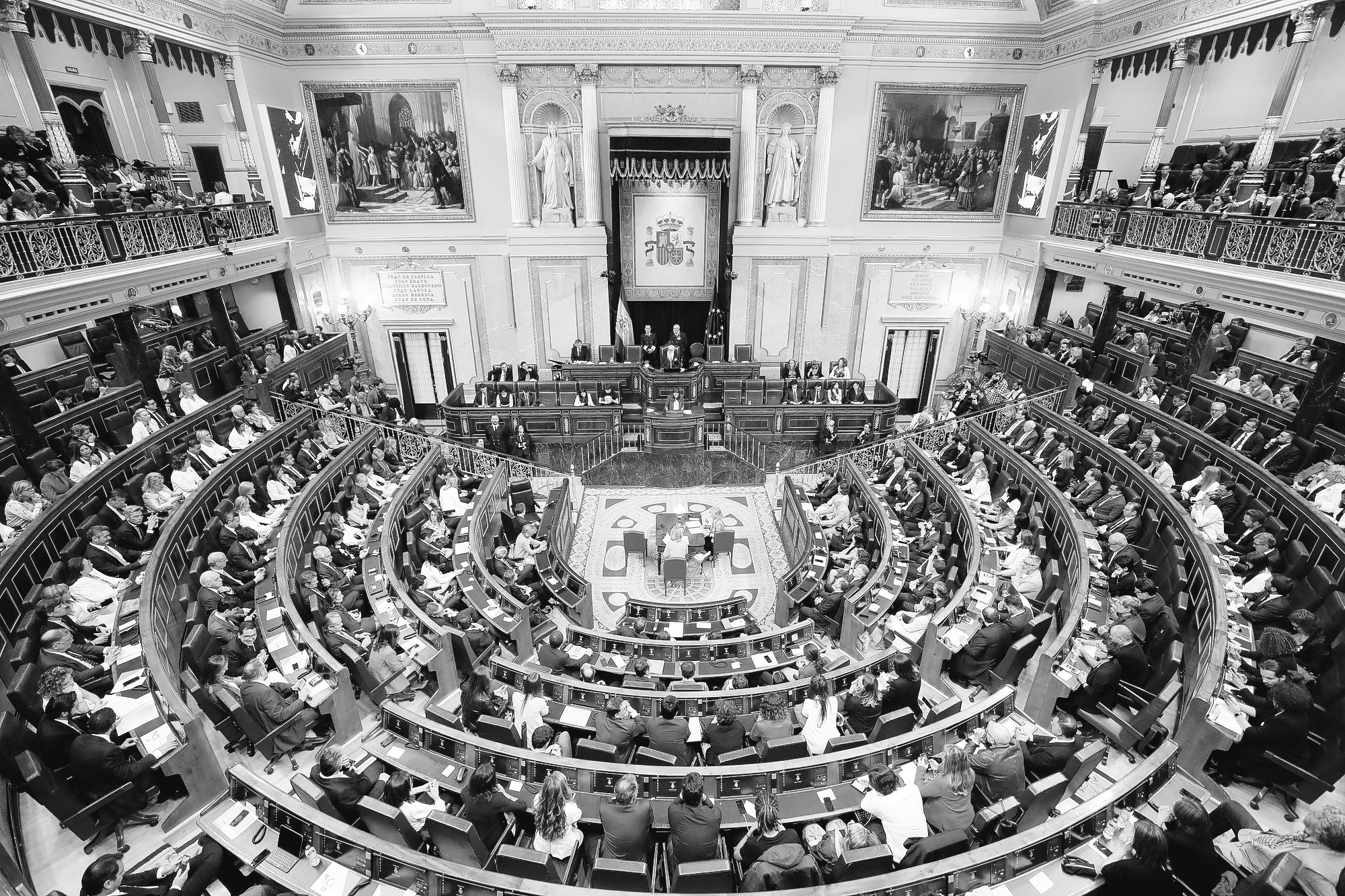
A fragmented Spanish Parliament convened Tuesday after last month’s inconclusive general election, including for the first time Catalan politicians released from pre-trial detention for the occasion, as well as two dozen lawmakers from an upstart far-right party.
Socialist leader Pedro Sánchez won the national election but fell short of enough seats to form a government on his own. He has put off negotiations on governing alliances until after the European ballot concludes on Sunday, which in Spain coincides with votes to elect local councils and a dozen regional governments.
Escorted by police, four separatists on trial for Catalonia’s 2017 secession attempt, including former Catalan regional Vice President Oriol Junqueras, appeared in the Congress of Deputies, while former Catalan regional minister for international relations Raül Romeva was ferried to the Senate from a jail some 40 kilometers outside of Madrid.
The Supreme Court has allowed them to attend the opening sessions in Madrid but they are likely to be barred from future meetings by the chambers’ governing bodies elected on Tuesday.
Dressed in suits and exchanging embraces and greetings with other lawmakers, Junqueras and the three others took seats in the Congress of Deputies among political opponents, including two far-right Vox party deputies who are also prosecutors in their ongoing trial for rebellion and other charges that could land them in prison for decades.
Vox is the first parliamentary party that openly espouses Spanish nationalism since dictator Gen. Francisco Franco died in 1975. It wants to use its 24 seats among the 350 lower house lawmakers to propose legal reforms on abortion, violence against women and migration.
The eruption of Vox in the late April election split the right-wing vote into three groups, which together fell short of the 176 majority. As a result, competition for the leadership of the opposition has intensified between two parties — the once-dominant conservative Popular Party and the center-right Citizens.
The Socialists were the leading party in the election with 123 seats. But with Citizens ruling out any pacts to support a Socialist administration, Sánchez’s efforts to form a government are centered on the anti-austerity Unidas Podemos, which holds 42 seats, and some other smaller groups.
Those votes were key on Tuesday in the election of Socialist lawmakers from Catalonia was speakers of both houses: Meritxell Batet in the Congress of Deputies and Manuel Cruz in the Senate.
Sánchez said they had been proposed because both are “loyal to Spain” and because they have shown “an unwavering vocation for dialogue.”
“They are Catalans at the service of Spain and Spaniards at the service of Catalonia,” the prime minister told his Socialist lawmakers.
The speakers’ first task will be meeting with their governing bodies and deciding whether to suspend the elected separatist lawmakers because they are in jail while awaiting trial.
Tuesday’s unconventional session provided a number of odd situations to satisfy media camera lenses. Vox’s deputies chose to take seats that in past sessions had been occupied by the Socialists, placing the far-right party’s leader, Santiago Abascal, right behind Sánchez and other members of the Socialists’ caretaker government.
Sánchez greeted Abascal with a handshake. The Socialist leader also shook hands with Junqueras, who has become a symbol for pro-independence supporters in the northeastern Catalonia region.
Two Socialist lawmakers also made the rounds on social media when they posed near Abascal in T-shirts bearing an emoji with the rainbow flag. The icon has become popular and has been dubbed “Gaysper” after Vox used it during last month’s general election to target defenders of gay rights in a viral tweet.q



















